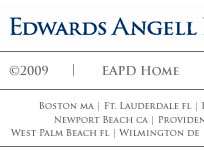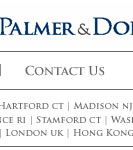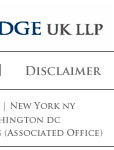
Litigation News
Veterans Permission for Day in Court
On 5 June 2009, Mr Justice Foskett gave permission to over 1000 ex-servicemen and families of ex-servicemen to sue the Government for damage to their health, which they claim they have suffered as a result of their presence at nuclear testing carried out in the South Pacific in the 1950s.
The Ministry of Defence ("MoD") had argued that the actions were time barred by the Limitation Act 1980, that they were doomed to failure in terms of proving a causal link between their presence at the testing and their subsequent ill health, and that there would be no possibility of a fair trial given that 90% of the 114 vital witnesses that the MoD would wish to call were either dead or untraceable.
The limitation argument revolved around the time at which the ex-servicemen and the families had the knowledge required to bring the claims. The judge held that five of the ten leading claims fell outside the time limit imposed by the Limitation Act on the basis that they were brought in light of knowledge acquired within three years of the issue of the claim. Remarkably, he exercised his discretion to set aside the time limit in relation to the other five lead cases, reasoning that they deserved their day in court.
The MoD's argument on causation was left for the trial judge to determine.
As to the lack of witnesses, the judge noted that it would be unthinkable that the testing had not been meticulously documented and the burden of proof rested, in any event, on the veterans.
This is one of the largest claims ever funded on a combination of an after the event insurance premium and conditional fee arrangement.
The judge gave the MoD permission to appeal, noting that this was almost inevitable given the significant public interest in the case.
Differing Interests – A Bar to Representative Action
In April 2009 the High Court ruled against the Claimants in a purported representative action against British Airways, holding that CPR 19.6 could not be stretched to accommodate the claim.
The Claimants, Emerald Supplies Ltd and Southern Glass House Produce Ltd, flower importers, issued a claim against British Airways alleging that they were victims of a cartel of which British Airways was a part, that had artificially inflated the prices for air freight services by agreement or concerted practices.
The Claimants brought the claim on their own account but also as "representatives of all other direct or indirect purchasers of the relevant air freight services". They relied on the provision of CPR 19.6, which states that where more than one person has the same interest in a claim, that claim may be brought by or against one or more of those people with the same interest as representatives of all those who have the same interest.
British Airways applied for an order to strike out the representative element of the claim on the grounds that the Claimants had not proved the basis on which the other persons with the same interest in the claim could be identified. The Chancellor of the High Court, Sir Andrew Morritt, struck out the claim on the basis that CPR 19.6 requires that those persons with the same interest to be identifiable at the time the claim was issued. In this case the class was defined by those purchasers of the air freight services who could show that they had paid for services at prices which were inflated by the alleged cartel. In other words, the class depended on the successful outcome of the claim and therefore was not identifiable at the commencement of the claim.
Further, the Court found that the relief sought was not equally beneficial to all members of the class: the claim depended on who had absorbed or passed on the alleged inflated price and, given the nature of the cause of action and the market, there was inevitable conflict between the claims of different members of the class.
It is important to note that the Judgment does not exclude the possibility of representative actions in competition based claims. Indeed, it was specifically noted that the fact that the members of the class advanced by the claimants were both numerous and geographically widely spread was not a bar to the representative action. However, the Judgment is an indication of the courts' narrow approach to such actions and judicial reluctance to relax the current requirements of CPR 19.6.
Court of Appeal's Judgment is Far From Small Potatoes For Proctor & Gamble
Potatoes, or rather 'potato-ness' was the hot topic taxing the Court of Appeal in May this year. The reason being that the brand owner of "Pringles", Proctor & Gamble ("P&G"), had sought to overturn the decision of the VAT Tribunal that Pringles were similar to potato crisps and therefore subject to standard-rate VAT (unlike most food products which are zero-rated).
In a tour de force of complex legal argument, P&G sought to differentiate its snack product from standard potato crisps by considering the "essential characteristics of the paradigm potato crisp". Pointing out that containing a potato content of only 42% and having a number of other significant ingredients (including, notably 33% fat), P&G argued that Pringles lacked the necessary "potato-ness".
The Court of Appeal were unmoved by the "over-elaborate, almost mind-numbing legal analysis" advanced on behalf of P&G and held that it was a matter for the VAT Tribunal to consider and that it was not for the courts to interfere with the Tribunal's decision.
P&G now face a substantial bill in back tax, estimated at £100million.
The Final Judgment of Lord Hoffmann Confirms His Judicial Legacy
Lord Hoffmann, the second most senior law lord in the land, retired at the end of April this year. However, on 1 July 2009 the Judgment in his final case was handed down by the House of Lords. The case of Chartbrook Ltd and another v Persimmon Homes Ltd and another [2009] UKHL 38 involved an important point of contractual law, namely whether the court should intervene to correct a mistake in the drafting of a contract.
Chartbrook claimed that, based on a literal reading of the contract, it was owed significantly more money by Persimmon than Persimmon were prepared to accept. Persimmon argued that something had clearly gone wrong in the drafting of the contract and that when the contract was signed it was understood that the contract was to be construed rather than read literally.
The first instance Judge and the Court of Appeal both ruled in favour of Chartbrook and a literal reading of the contract with no judicial intervention. However, the House of Lords panel, chaired by Lord Hoffmann (at his own request), reversed the decisions of the lower courts and ruled that the Court did have the right to intervene to correct a mistake in this case. Lord Hoffman found that something had gone wrong with the drafting and that it was therefore right to construe the contract rather than to read it literally.
For Lord Hoffmann, Chartbrook was a final opportunity to reaffirm and reapply the rules on construction of contracts set down in the leading case of Investors Compensation Scheme v West Bromwich Building Society [1998] 1 WLR 896 in which the House of Lords (including Lord Hoffman) first advocated the intervention of the Court to correct a mistake in a contact in certain limited circumstances.
In allowing the appeal in Chartbrook, Lord Hoffmann reviewed the case law on the point since Investors Compensation Scheme v West Bromwich Building Society and concluded that:
"what is clear from these cases is that there is not, so to speak, a limit to the amount of red ink or verbal rearrangement or correction which the court is allowed. All that is required is that it should be clear that something has gone wrong with the language and that it should be clear what a reasonable person would have understood the parties to have meant. In my opinion, both of these requirements are satisfied."
Following the conclusion of Charbrook Lord Hoffmann can now enjoy his tenancy at Brick Court Chambers, safe in the knowledge that what many see as his judicial legacy is still holding firm.
Contacts
The information in this newsletter is for general guidance only and is not intended to be a substitute for specific legal advice. If you would like any further information please contact:

Alex Radcliffe
Associate, Commercial Litigation - London
t: +44 (0) 20 7556 4593
e: ARadcliffe@eapdlaw.com









